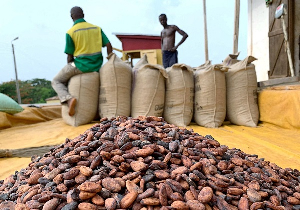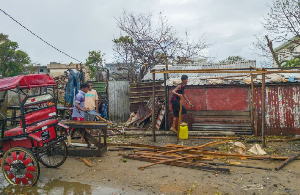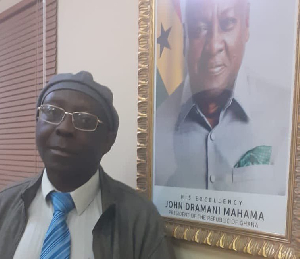A project has begun to promote psycho-social well-being of children aged between eight to 13 years by addressing issues of behavioural challenges that they experience.
The multi-family group project is also to build skills and competencies for families particularly parents and teachers to support the healthy growth and development of children.
A total of 300 children from six schools in the Tamale Metropolis and Sagnarigu Municipality will benefit from the project.
The project is being implemented by BasicNeeds-Ghana in partnership with School of Public Health of the University of Ghana and Washington University in Saint Louis with funding from the National Institute of Mental Health of the United States of America (USA).
Mr Peter Yaro, Executive Director of BasicNeeds-Ghana, who spoke at a training of stakeholders on the project in Tamale, said the project was to amongst others enhance the coping strategies of children to day to day stresses of life.
The training was for stakeholders comprising officers from the Northern Regional Office of the Ghana Education Service, guidance and counselling coordinators, special education coordinators, school health education project coordinators, circuit supervisors and parent-teacher association chairpersons from the Tamale Metropolis and Sagnarigu Municipality.
It was to enhance their skills and competencies to be able to support the implementation of the project.
Mr Yaro said the project sought to support parents and teachers to understand how to better work with children to enhance their psycho-social well-being as part of child upbringing and development to enhance their educational achievement.
Behavioural challenges that children experience tend to prevent or hamper their active learning or participation in curricular activities hence this project, which is adapted from a similar intervention in the USA, and currently in Uganda to improve well-being of children.
He said “It is mainly for the perspective that we are not working only to treat people with mental illness but also to promote healthy lifestyles and to prevent the occurrence of mental illness in the first place.”
Dr Emmanuel Asanpong, Senior Lecturer, School of Public Health, University of Ghana, who was one of the facilitators during the training, said the project had been tried and tested in other setting adding “It is being situated in our setting to enable children to overcome the challenges that they encounter as they grow.”
Dr Ozge Sensoy Bahar, Research Assistant Professor at Washington University in St Louis, said it was a privilege to partner with implementers on the project, adding the project would “Strengthen families to create a safe environment where families can live friendly with each other”.
General News of Tuesday, 27 March 2018
Source: ghananewsagency.org
Project to improve well-being of children begins
 About 300 children in the Tamale Metropolis and Sagnarigu Municipality will benefit from the project
About 300 children in the Tamale Metropolis and Sagnarigu Municipality will benefit from the project












